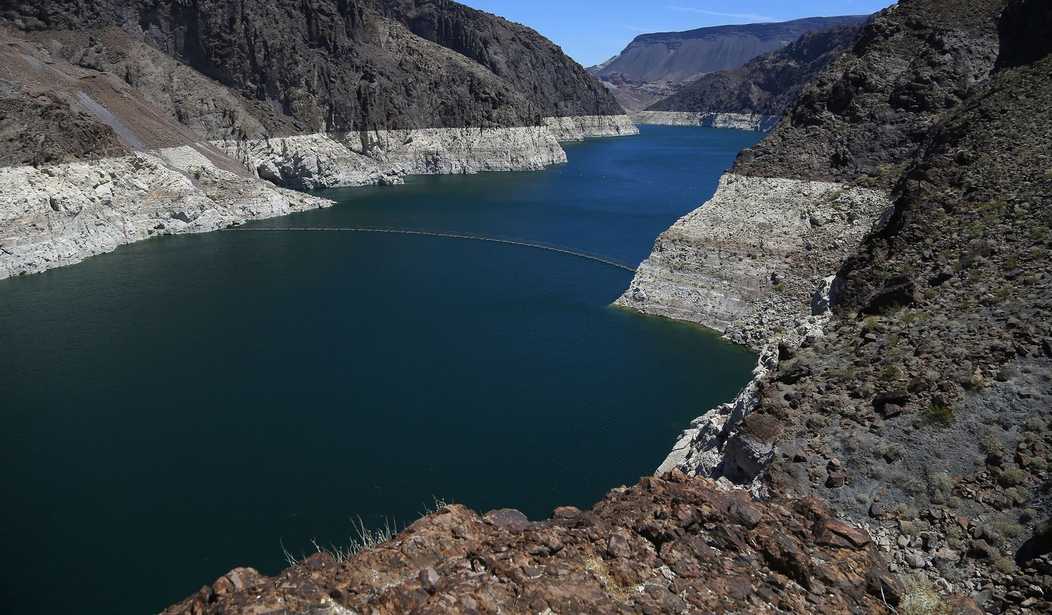Editor's note: this piece was authored by Micah Safsten.
In the west, we like to say that “Whiskey is for drinking; water is for fighting.” This is still true, but this summer’s fight over Colorado River water showed that when large federal bureaucracies manage western water, it becomes a fight no one can win. This failure to reach a solution should provoke serious discussion about who is best positioned to manage this river.
The American West is facing an unprecedented 23-year drought, and nowhere is that more obvious than in the Colorado River Basin. The two primary reservoirs along the river, Lake Powell and Lake Mead, are lower than ever before, and their ability to generate hydroelectric power is in jeopardy.
In response to the increasing levels of drought throughout the American west, the Bureau of Reclamation asked the seven states of the Colorado River Basin to submit a single plan to conserve water by 2-4 million acre-feet annually, enough water for 4-8 million families every year. If the Basin failed to make this plan by August 16th, the Bureau would impose its own conservation plan. A two-month negotiation process ensued, one that split the Upper Basin (Colorado, Wyoming, Utah and New Mexico) and the Lower Basin (Arizona, California, Nevada and Mexico). Unsurprisingly, the state officials came up empty.
The negotiation process was strikingly unproductive and uninspired. The states reached little consensus, and not one of them presented a new idea. While the Upper Colorado River Commission did release a 5-point plan in July, the plan contained no measurable conservation goals. There was even less consensus from the Lower Basin, which uses far more Colorado River water. It soon became clear that no basin-wide agreement would be reached, and that the Bureau of Reclamation would have the final say.
Recommended
At least, it was clear until two weeks ago, when the Bureau of Reclamation punted and admitted that it had no idea how to save the Colorado River either.
To be fair, the Bureau did implement some changes. For the first time ever, they reclassified the Lower Colorado River Basin as being in a “Tier II” shortage, triggering significant mandatory cutbacks in the three Lower Basin states. Still, the cuts are far less than the initial demand, amounting to only about 720,000 acre-feet.
With such dire conditions, one might wonder why local leaders were unable to come together and agree on the necessary sacrifices to save the river. Their failure to concur with one another should not be surprising, however, considering the authority granted to such a distant governing body like the Bureau of Reclamation. When scarce natural resources —like water —are governed by institutions distant from the resource itself, there is less incentive for fair and decisive allocation. This also explains why the states were so unwilling to negotiate. Why would they, when they knew the Bureau would bail them out of making the hard decision?
A frequent criticism of Congress is that it delegates hard choices to the executive branch, which is more insulated from public criticism. This is precisely what the Upper Colorado River Commissions did in passing the conservation decision up the ladder. And while the Bureau of Reclamation still has a superficial interest in conserving water, it lacks the incentives of local water districts, municipalities, and state governments.
It is certainly the case that both local authorities and individuals are primarily interested in preserving as much water as possible for themselves. When collaborative conservation becomes the only option left on the table, however, people’s incentive to hoard transforms into an incentive to work with neighbors to preserve resources. By contrast, when that conservation is imposed from above, as it has been from the Bureau of Reclamation and other large institutions, self interest remains as the predominant concern for local parties.
This is not a new concept. The political scientist Elinor Ostrom became the first woman to receive the Nobel Prize for economics when her research cast doubt on “the tragedy of the commons,” or the idea that common resources will inevitably be squandered. Ostrim showed examples from all over the world of communities cooperating with each other to distribute scarce resources. This only worked in the absence of top-down regulation.
Big government programs are a tale as old as time. What’s new are the dry conditions facing the American west today. Much of the infrastructure, institutional arrangements and legal agreements in the Colorado River Basin were created during abnormally wet periods. Now, the Basin is facing a megadrought, one that could be a permanent age of aridification. The west needs new institutions to transform water management in the Basin.
It is time to give regulating authority back to state and local leaders. Of all the leaders in the west, they are the ones thirsty enough to understand why our water is worth the fight.
Micah Safsten is a contributor at Young Voices and often writes about water in the west, as well as a variety of other policy issues. He holds a master’s degree in Political Science from Utah State University.

























Join the conversation as a VIP Member